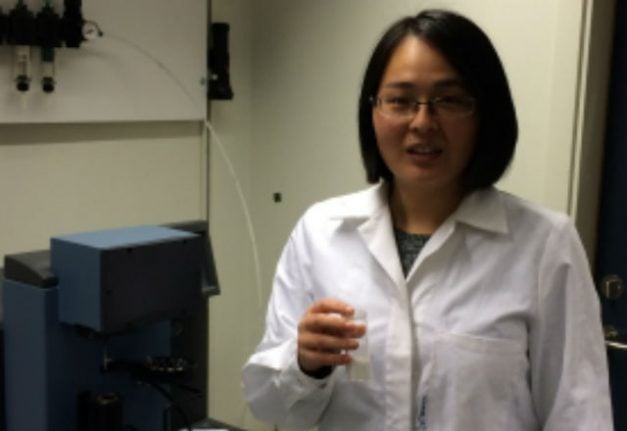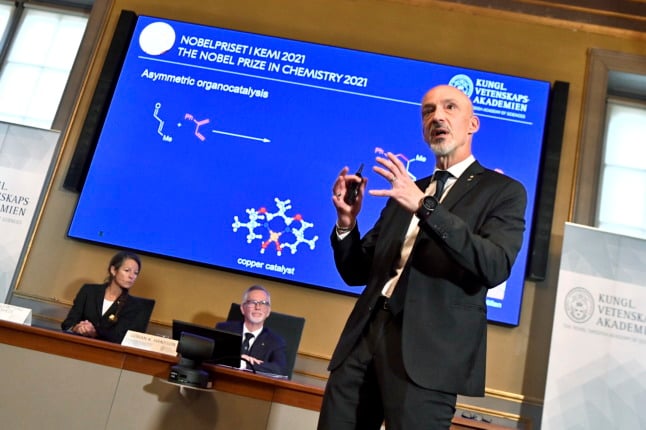Zhang said he had brought Ping Wang to Lund from northern China to help him extend the search for new, sustainable plastics, and decided to test indole as a complex aromatic unit suitable to replace the benzene in PET, the substance used to make plastic bottles.
SCIENCE
Lund scientist creates new plastic from molecule that makes faeces smell
A scientist at Lund University has developed a new sustainable plastic based on indole, the aromatic unit that makes human faeces smell.
Published: 14 January 2019 15:03 CET
Updated: 14 January 2019 16:27 CET
Updated: 14 January 2019 16:27 CET

Ping Wang began her PhD at Lund in October 2018. Photo: Lund University
Indole can be produced by several bacteria, occurs naturally in human faeces and has a strong faecal odour.
But Baozhong Zhang, associate professor at Lund's Centre for Analysis and Synthesis, said that the new biopolyester his PhD student Ping Wang had created was totally odourless.
“Once you make this into a plastic, it changes completely and it doesn't have any smell,” he told The Local.
Zhang said he had brought Ping Wang to Lund from northern China to help him extend the search for new, sustainable plastics, and decided to test indole as a complex aromatic unit suitable to replace the benzene in PET, the substance used to make plastic bottles.
“Most plastics are produced from petroleum resources and in order to prevent us from using too much crude oil and to reduce greenhouse gas and carbon emissions from the plastic industry, we would like to make plastics from biomass and sustainable resources,” Zhang said.
Up until now much of the research has focused on using furan, an aromatic unit which can be made from sugars or pine, to replace benzene.
“We tried to think a bit broader, to open our eyes a bit, and consider the possibility of using other bio-materials,” Zhang said. “No one had tried this before. We didn't know what property we would get if we incorporated an indole unit into the plastic.”
He and Wang discovered that the resulting polyester was in many ways superior to PET, able to withstand higher temperatures and to be recycled endlessly, meaning it could be used for plastic coffee cups and even, if plans to increase its melting point are successful, for kettles or teapots.
The pair published their results in the journal Polymer Chemistry in October.
Zhang said that he did not understand why the substance had not been investigated previously.
“I'm curious why this indole, which has such a great potential, has been largely ignored by the scientific community,” he said. “But surprisingly we are the first ones to come out with this test.”
While indole is present in faeces, this does not mean municipal sewage plants will become the plastic factories of the future. Zhang said he did not know how the substance could be produced on a large scale.
“We know that indole can be made from various resources in nature, it can be made from amino acids, from some plants, but the conversion from biomass to indole, this is not our work,” he said.
“With this work we're just trying to stimulate the biochemistry people to get interested in this.”
Url copied to clipboard!


 Please whitelist us to continue reading.
Please whitelist us to continue reading.
Member comments